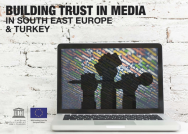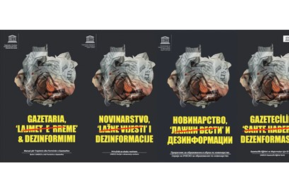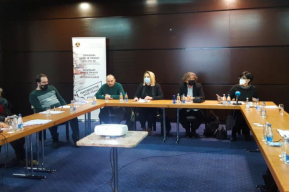Project
Building Trust in Media in South East Europe and Turkey- Phase 2
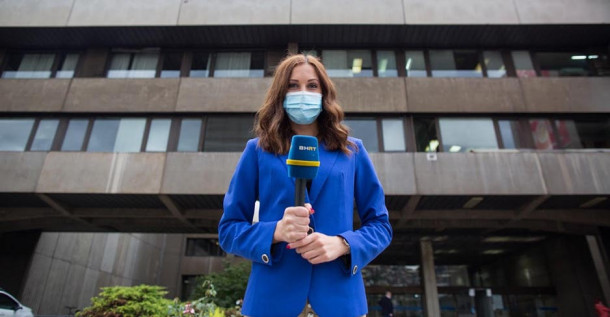
In the context of a rapid digital transformation and the thriving of information chaos characterized by a decline in the commitment of professional journalistic standards, the thriving of disinformation, and a clear decline in the civil society’s trust in media, UNESCO and the European Union have launched the second phase of the project “Building Trust in Media in South East Europe and Turkey.”
How
To achieve its overall objective, the project specifically aims at:
- Increasing critical thinking among youth thanks to piloting Media and Information Literacy (MIL) skills in formal and non-formal education;
- Improving capacities of media outlets to counter misinformation and disinformation;
- Strengthening media accountability and increasing media good governance towards users by supporting self-regulation mechanisms’ sustainability.
When
November 2019 - November 2022
Where
The project is being implemented in Albania, Bosnia and Herzegovina, the Republic of North Macedonia, Montenegro, Serbia and Türkiye, as well as in Kosovo (administered by the UN Interim Administration Mission in Kosovo in the context of UN Security Council Resolution 1244).
Overview of activities
Introducing MIL in formal and non-formal education systems
- Provide technical support to authorities, duty-bearers and curricula development agencies on MIL
- Offer teacher training to introduce MIL curricula in primary and secondary schools
- Enhance the MIL capacities of youth development agencies and organisations
Improving the capacities of media outlets and young reporters to counter disinformation
- Empower selected independent media outlets with knowledge and skills for the digital age including fact-checking skills
- Improve the internal governance of selected media outlets through the commitment to new transparency mechanisms and labour rights
- Enhance the capacities of young reporters to address online disinformation
Strengthen media accountability through sustainable self-regulation mechanisms
- Direct support to press and media councils to strengthen their capacities and sustainability
- Exchange of best practices on digital media ethics and activities of press and media councils on disinformation and MIL
Resources
List of resources about the project:
MIL skills in times of COVID-19 disinformation
In connection with the Coronavirus outbreak, the world also witnessed an “infodemic”, with disinformation and misinformation as fast as the virus on social media. To provide users with easy to apply MIL skills that will help users to navigate through the overwhelming amount of information shared about the virus, UNESCO has launched a social media campaign on MIL and COVID-19 with practical tips and best practices. The campaign is based on a series of infographics available in all local languages of the South East Europe region, as well as in Turkish, in open access and free to be used, downloaded and shared under the hashtags #TrustInMediaSEE and MilClicksSEE.
SEE MIL platform – South East Europe Media and Information Literacy
The SEE MIL platform is created within the UNESCO EU-funded project “Building Trust in Media in South East Europe and Turkey – phase 2” that, among others, aims to promote MIL in formal and informal education in the region. The platform offers an overview of the current state of play of Media and information in the region in formal and informal education, mapping out efforts and results achieved in MIL by different organisations across the region.
The video was produced with the financial support of the European Union. Its contents are the sole responsibility of UNESCO and do not necessarily reflect the views of the European Union.
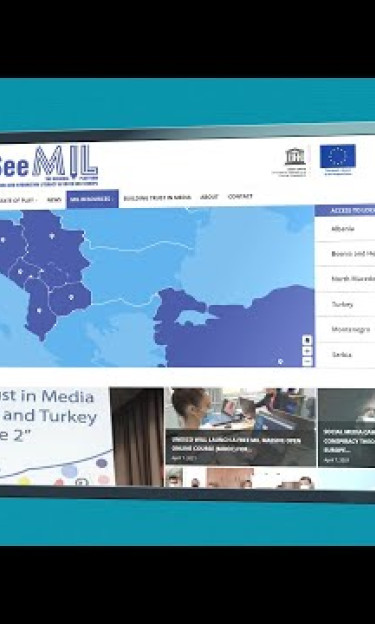
SEE Regional Conference on Media and Information Literacy
Organized on 21 October 2021 in Sarajevo, UNESCO South East Europe Regional Conference on Media and Information Literacy aimed to take stock of introducing MIL in formal and informal education in South East Europe. The event was organised as a part of the UNESCO EU-funded project “Building Trust in Media in South East Europe and Turkey – Phase 2,” marking the UNESCO Global MIL Week 2021 with its central theme - “MIL for the public good.”
Opening panel: Strategies and Policies Panel
Panelists:
- Ms. Naida Hota-Muminović - Minister of Education of Sarajevo Canton
- Ms. Evis Kushi - Minister of Education and Sports of Albania
- Mr. Emir Vajzović - Associate Professor at the Faculty of Political Sciences, University of Sarajevo
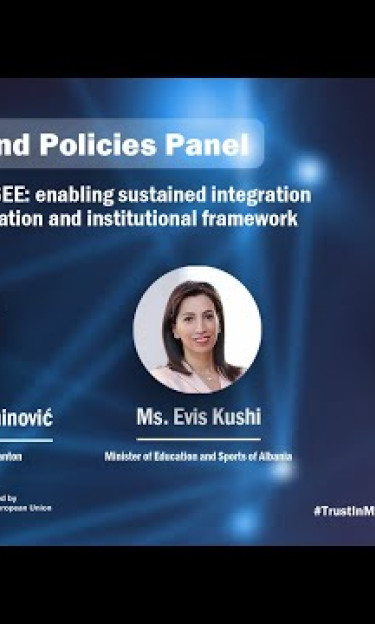
The SEE MIL offers an overview of the current state of play of Media and information in South East Europe and Turkey in formal and informal education, mapping out efforts and results achieved in MIL by different organisations across the region.
Launching the SEE MIL platform: https://seemil.org/
Panelists:
- Mr. Borislav Vukojević - national consultant and media and information literacy expert in UNESCO Sarajevo Office
- Ms. Lea Čengić - media and information literacy specialist
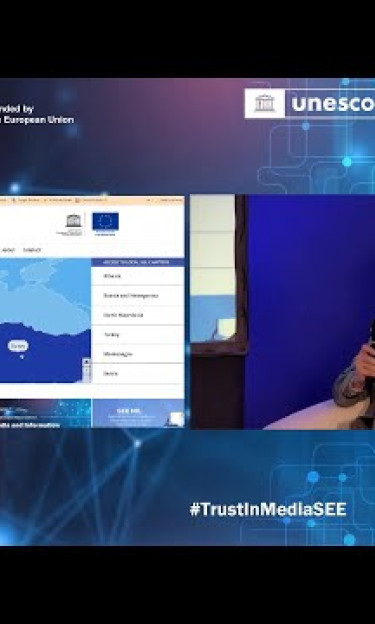
The SEE region is witnessing a multiplication of projects and initiatives to ensure that supporting MIL as a priority translates into reality. Taking stock of those projects and initiatives, the panel session gave the voice to some project beneficiaries or stakeholders.
Panel 1: MIL on the ground, Implementing approaches, strategies and action plans
Panelists:
- Biljana Petkovska - Director, Macedonian Institute for Media
- Astrit Dautaj - Agency for Quality Assurance in Pre-University Education (ASCAP)
- Anida Sokol - Researcher, Mediacentar Sarajevo
- Božena Jelušić - Literature and Media Literacy professor in Montenegro
- Amina Abdulahović - Expert Associate Advisor and Librarian

As online platforms became the dominant information source for youth, their critical thinking and engagement are more important than ever to engage with information responsibly and counter online disinformation and hate speech. The panel explored how to empower youth in SEE through MIL and increase their capacity to engage with quality information, counter malign narratives online, and act as educators of their peers.
Panel 2: MILYouth in action to address online harmful content
Panelists:
- Kristina Dimitrova - Project Coordinator at Youth Council Next Generation, and SEE Youth Newsroom member
- Selena Tasic - Young European Ambassadors Project Team Leader, WeBalkans
- Ivana Jelaca - Western Balkans Director, Media Diversity Institute
- Hadzera Selimovic - Young European Ambassador
- Tara Simovic - Young reporter, UNICEF Montenegro

The Covid-19 pandemic revealed the critical role of journalism in providing access to reliable information and empowering citizens in debunking false information. The panel explored the tools developed by the media to help citizens access reliable information.
Panel 3: The role of MIL in empowering journalism online
Panelists:
- Marina Tuneva - Executive Director, Council for MediaEthics in North Macedonia
- Bojan Cvejic - Editor-in-Chief, Portal Danas
- Ozgün Ozcer - Project Coordinator, P24
- Lea Auffarth - Project Coodinator, JTI, RSF
- Jasna Jelisic - Head of the Western Balkans Task Force,European External Action Service
- Erkan Saka - Associate Professor, Bilgi University

Donor
European Union
The primary objective of the European Union’s development policy is the eradication of poverty in the context of sustainable development. EU partnerships with developing countries to promote respect for human rights, peace, democracy, good governance, gender equality, the rule of law and justice.
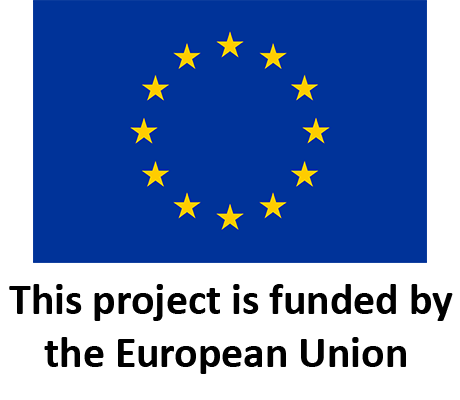
Follow Us on Tweeter: #TrustinMediaSEE
Publications


